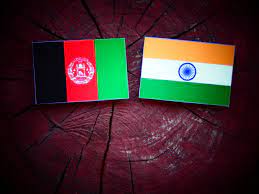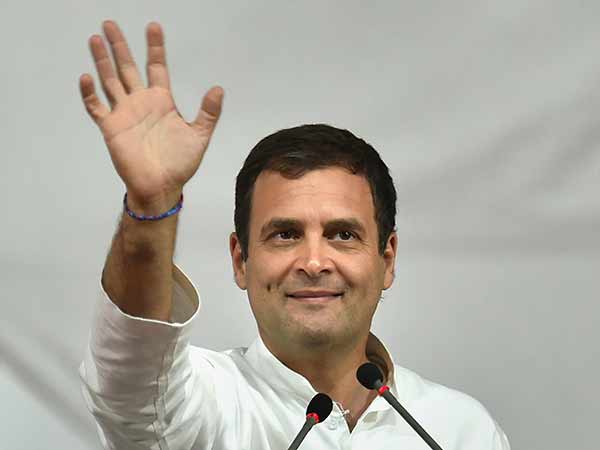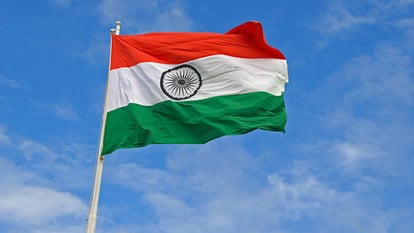Kabul and the dilemma of Indian foreign policy

What is the central government’s policy on the current situation in Afghanistan and the Taliban? Amidst the meeting of all the parties on Thursday, External Affairs Minister S Jaishankar said that the policy is – it is the policy of ‘wait and watch’ – that is, watch and wait. All the parties were of the opinion that the government was doing the right thing – nothing can be done in Kabul at the moment. Will have to wait what turn the situation takes there.
In fact, this consensus suggests that the Indian political establishment has stopped thinking about foreign policy. Our current leaders have little knowledge of foreign affairs and they leave this work to the babus. Actually, making S Jaishankar the foreign minister is an extension of this process.
In Afghanistan today there is really no way but to wait. We have to go through many difficult stages to get our people out of there. The Kabul airport is handed over to the US and the streets of Kabul under the control of the Taliban. But why did this state of helplessness come? Because we have been implementing ‘watch and wait’ for a long time, not from today. We stood by Afghan President Ashraf Ghani, flaunted our investments in Afghanistan, and didn’t bother to think about what would happen to our interests and our people if there was an overthrow in Afghanistan. India was watching and waiting even when the Taliban were reaching Kabul through the roads built by the Border Roads Organization of India at a cost of about 1100 crores.
Before that the world was talking to the Taliban, even then India was watching. America was explaining the difference between good and bad Taliban, even then we could not understand that America’s interest is only that Taliban should not harm its people – whatever Kabul does. There is no doubt that India relied too much on America. Like Ashraf Ghani, he kept on believing that America would do everything right. Because of this overconfidence, India’s investment in Afghanistan, the agreements made there – all are in danger.
In fact, the Foreign Minister is absolutely right that his priority is to bring back his people from there. Many of these people have also been brought back. There are also many Hindu-Sikhs among them who were living there for years. Interestingly, the priority of many of these people was to go to America, not India. They were demanding that America give them a visa and take them out. But India should also take care of those Afghan citizens who kept coming and going in India during the pre-Taliban era and were active in different schemes here. For example, there are many students who came to India from Afghanistan to study. They are stuck in Kabul. These are not Afghans who want to flee for fear of the Taliban. He has a valid reason to return to India. Shouldn’t the Indian government also take care of them?
But in reality the Government of India is just waiting. One result of this wait was that Rangina Karkar, an Afghan diplomat who came to India from Istanbul, was turned back from the Delhi airport itself. The diplomat remarked that he was treated like criminals. The Government of India has admitted that in this matter he has made a mistake in the information and is ready to give him e-Visa again.
But what is the signal going? The changes in its neighbourhood, in which India was once an active participant, turned as irrelevant as Ashraf Ghani has become. Was India assuming that lasting peace had arrived in Afghanistan and that the possibility of a Taliban entering there was forever gone? What were our Ministry of External Affairs and our National Security Advisor doing at that time?
The situation is that now Taliban is giving knowledge that India and Pakistan should sit together and solve their problems. He is promising that he will not allow his land to be used against other countries. He is claiming that he wants good relations with India.
What is India doing? Indian sources are expressing the apprehension that Afghanistan should not become a new hotbed of terror, that Lashkar-Jaish, IS should not sit there and export jihadis to India. Or maybe India is waiting to see who recognizes the Taliban. If some countries of America and Europe give recognition, will India also stand in this queue? Should Russia-China-Pakistan also recognize the Taliban, then India will not be compelled not to keep a country in its neighborhood as its enemy?
It is true that the answers to these questions are not easy. But this is not a case of failure of Indian policy in Kabul itself. American hangover has hit us on many fronts. We weakened the comfortable ties we had with Iran under US pressure. A small country with a population of 9 million appeared so close to Israel that the countries of West Asia were astonished. Whereas our relations with our neighbors are not getting easy. China-Pakistan are no longer neighbors but enemies. Trusted friends like Nepal-Sri Lanka seem to be slipping. But there is no doubt that India’s foreign policy has been a mess for a long time. As we move closer to Pakistan, we start looking away from it. Our Prime Minister is seen swinging with the Chinese President and then there is a view of the Galwan Valley directly. We have forgotten non-alignment as a legacy of the Nehru-Indira era.
Overall, we are facing a situation of no choice in which we are telling ‘wait and watch’ as our policy. It can only be prayed that as long as India is waiting, its citizens trapped in Kabul or other countries associated with it. Let the citizens be safe and sooner or later there should be a way for them to leave.







